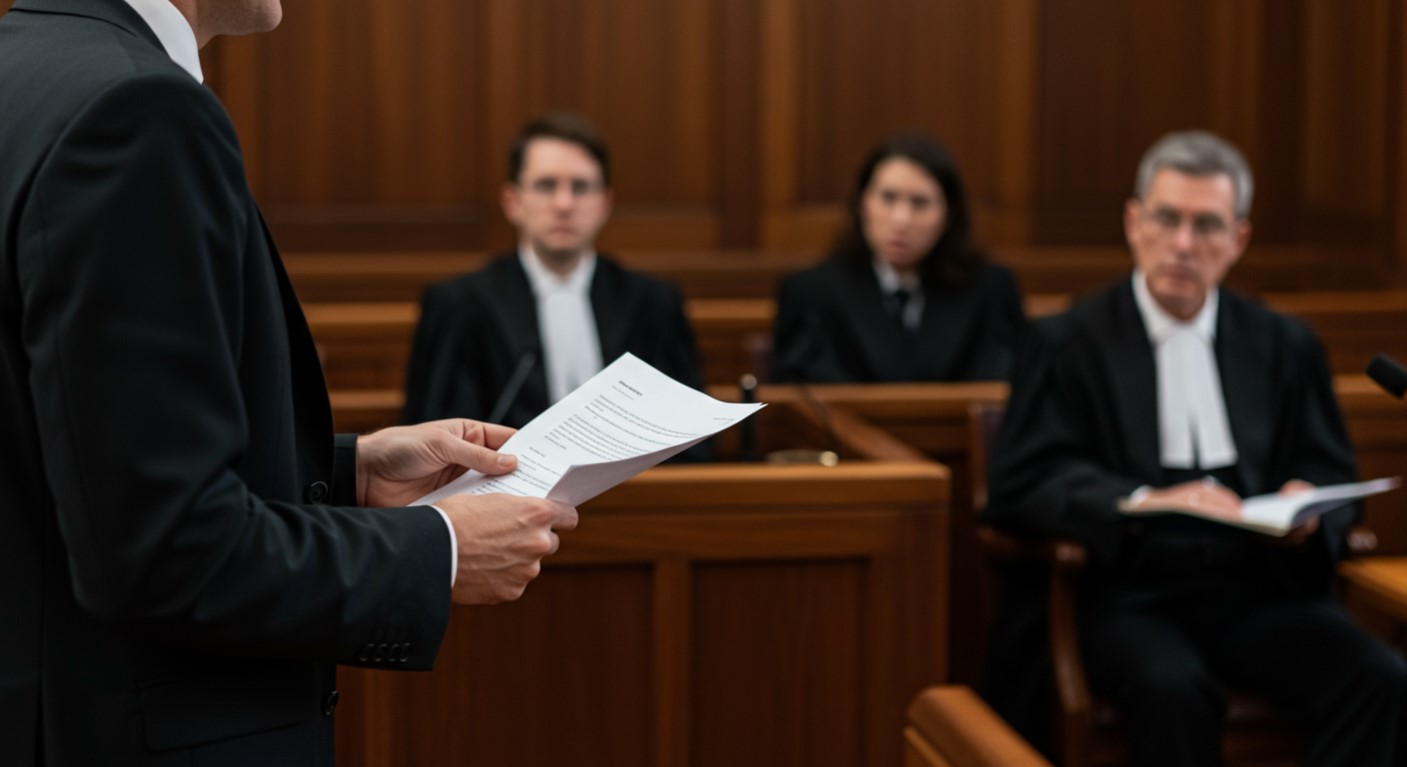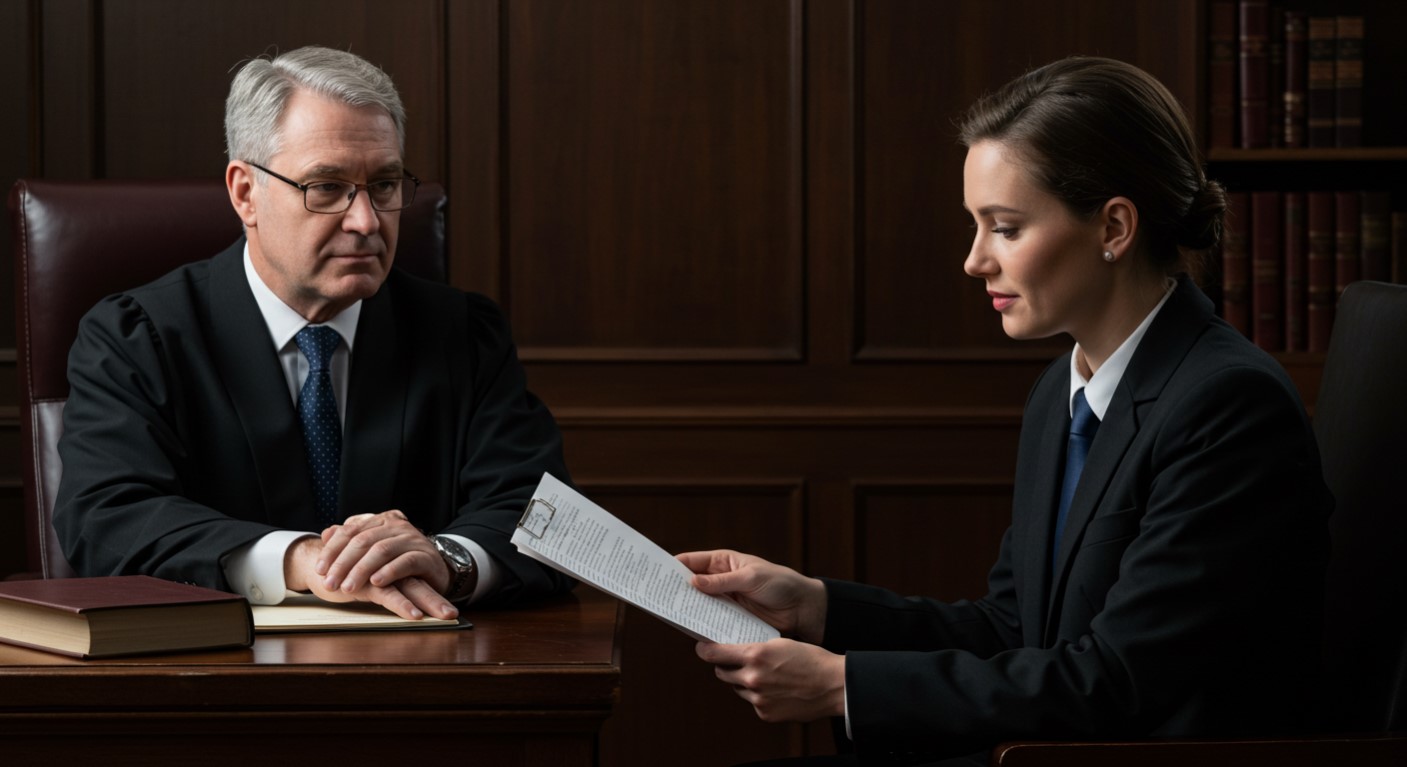Understanding Criminal Assault under English Law: Everything You Need to Know

Understanding Criminal Assault under English Law: Everything You Need to Know
When it comes to criminal offences in England, few are as common, or as misunderstood, as assault. Contrary to popular belief, an assault does not necessarily involve physical harm.
In English law, there are different categories and types of assault, each with its own legal definitions, implications, and potential defences. In this comprehensive guide, we will break down the complexities of assault under English law.
What Constitutes Criminal Assault Under English Law?

Categories of Assault
- Common Assault
The basic offence of assault, often referred to as “common assault,” is committed when a person either assaults another person or commits a battery. It is a summary offence, meaning it is usually tried in a magistrate’s court.
However, if it’s linked with another either-way offence (an offence that can be tried either in a magistrate’s court or a crown court), it may be tried in the crown court. The maximum penalty for common assault is six months imprisonment and/or a fine.
- Assault Occasioning Actual Bodily Harm (ABH)
The offence of Assault Occasioning Actual Bodily Harm (ABH), is a more serious form of assault, defined by Section 47 of the Offences Against the Person Act 1861. This is committed when a person assaults another, thereby causing Actual Bodily Harm (ABH).
ABH includes any injury that interferes with the health or comfort of the victim. It does not have to be serious or permanent but must be more than transient or trifling. Examples include cuts, bruises, abrasions, and psychiatric injury. The offence can attract a maximum sentence of five years imprisonment if tried in a crown court.
- Grievous Bodily Harm (GBH)
Grievous Bodily Harm (GBH) represents the most severe category of assault. It’s committed when a person unlawfully and maliciously, either with or without intent, wounds or inflicts GBH on another. The term “grievous” means really serious harm, which includes physical or psychological damage.
GBH is classified into two categories under the Offences Against the Person Act 1861:
- Section 20 GBH is the offence of maliciously wounding or inflicting GBH, either with or without a weapon. The perpetrator need not have intended to cause serious harm; it is enough if they intended to inflict some harm or were reckless as to whether harm would be caused. This is an either-way offence and carries a maximum sentence of five years imprisonment if tried in a crown court.
- Section 18 GBH or GBH with intent is the most serious form of assault. This involves causing GBH with the specific intent to do serious harm. Because of the requirement for specific intent, this is a harder charge for the prosecution to prove. It is an indictable-only offence, meaning it can only be tried in a crown court, and carries a maximum sentence of life imprisonment.
It’s important to note that while these categories provide a broad structure for understanding the levels of assault, the specific circumstances of each case can significantly impact how these laws are applied and the severity of the punishment.
Elements of The Crime Required to Prove an Assault
In order to prove an assault case in court, the prosecution must satisfy certain elements of the crime beyond a reasonable doubt. Here’s a detailed breakdown of the elements required to prove an assault:
- Actus Reus (Guilty Act)
The prosecution must show that the defendant committed an act that resulted in the victim apprehending immediate and unlawful force.
This could include a variety of actions such as threatening words, raised fists, or aggressive movements. It’s important to note that no physical contact needs to have occurred. What is crucial is that the victim believed they were about to be harmed.
In the case of battery (often colloquially referred to as assault), the prosecution must prove that the defendant intentionally or recklessly applied force to the victim. This includes any touch, however slight, provided it was hostile or unwanted.
- Mens Rea (Guilty Mind)
The prosecution must prove that the defendant intended to cause the victim to apprehend immediate unlawful violence or was reckless as to whether such apprehension might be caused.
For an assault, the defendant must have intended for their actions to make the victim believe they were about to be harmed, or the defendant must have been aware that their actions might cause the victim to fear immediate harm but carried on regardless.
For a battery, the defendant must have intended to apply unlawful force to the victim or have been reckless as to whether such force might be applied.
- No Lawful Excuse
The prosecution must also demonstrate that the defendant had no lawful excuse for their actions. There are several possible defences to assault charges, including self-defence, defence of another, defence of property, and lawful authority (for example, a police officer making a lawful arrest).
- Proof Beyond Reasonable Doubt
Finally, all these elements must be proven beyond reasonable doubt. This is the standard of proof in criminal cases and means that the evidence against the defendant is so strong that there’s no reasonable doubt left in the mind of a fair and rational person that the defendant is guilty.
It’s worth mentioning that the complexity and nuances of legal proceedings make it essential for anyone accused of assault to have professional legal representation. An experienced criminal solicitor can advise on potential defences, ensure that a person’s rights are protected, and challenge the prosecution’s case where appropriate.
Potential Defences Against Assault Charges

When facing charges of assault under English law, several potential defences could be raised, depending on the circumstances surrounding the case. Here’s a detailed look at these defences:
- Self-Defence
Self-defence is probably the most commonly invoked defence in assault cases. This defence involves the use of reasonable force to protect oneself from harm. The force used in self-defence should be proportionate to the threat faced and should not be excessive. For instance, if a person is threatened with minor harm, responding with extreme violence may not be considered self-defence.
A person can also use this defence to protect another person or property, provided they believe the use of force is necessary and their response is proportionate. However, proving self-defence can be complex and generally requires expert legal advice.
- Consent
In some circumstances, where the victim has consented to the application of force, this may serve as a defence. However, consent cannot be used as a defence in cases involving serious harm or injury unless the harm was a foreseeable incident of a lawful activity, such as boxing or surgery.
- Mistaken Identity
In some cases, a defendant may be able to argue that they have been incorrectly identified as the perpetrator. This defence could be raised if there’s a plausible argument that the defendant was not the person who committed the assault.
However, a mistaken identity defence must be supported by evidence. This could be an alibi (evidence to show the defendant was elsewhere at the time of the assault), or evidence to challenge the reliability of the identification (for example, poor lighting conditions or inconsistencies in the victim’s description of their attacker).
- Lack of Intent
Assault requires an element of intent or recklessness. If it can be demonstrated that the defendant had no intention to cause the victim to fear immediate harm, nor was reckless as to whether such fear would be caused, it may serve as a defence. However, this defence often requires supporting evidence, such as witness statements, video evidence, or expert evidence.
- Automatism
Automatism refers to involuntary behaviour, where a person has no control over their actions. It can be a complex defence and is not commonly used. It requires medical evidence to show that the defendant was unaware of their actions when the assault occurred, due to a reason such as a physical disease, mental disorder, or the effect of medication.
It’s important to remember that defences to assault charges can be complex and require a comprehensive understanding of the law. Therefore, if you are facing an assault charge, it is crucial to seek expert legal advice. A qualified and experienced criminal solicitor can guide you through the process, help you understand your rights, and provide advice tailored to your individual circumstances.
The Importance of Legal Representation

Facing a criminal charge like assault is a serious matter, and the importance of obtaining professional legal representation cannot be overstated. Here’s an in-depth look at why legal representation is so crucial in these situations:
- Understanding of the Law
Criminal law is intricate and continually evolving. Qualified lawyers spend years studying and keeping up with changes in the legal landscape. They understand the intricacies of the law, including precedents set by previous cases, interpretations of legal statutes, and procedural requirements. A solicitor will help you navigate through the complexities of the law, ensuring you understand the charges against you, the potential outcomes, and the best strategies for defence.
- Legal Procedure
Legal proceedings can be a maze of complex procedures and bureaucratic red tape. There are deadlines to meet, documents to file, and specific procedures to follow. Missing a deadline or failing to comply with a rule could have serious consequences for your case. Legal representation ensures that all procedures are correctly and promptly followed, which can be essential for the smooth progression and eventual success of your case.
- Defence Strategy
A solicitor can help construct a robust defence strategy based on their understanding of the law and the specifics of your case. They can challenge the evidence against you, question the reliability of witnesses, and raise defences you may not have considered. Without legal representation, you could miss vital opportunities to challenge the prosecution’s case.
- Representation in Court
Professional representation is crucial not only for developing your case but also for presenting it in court. Lawyers are trained in the art of advocacy and negotiation. They know how to present arguments effectively, question witnesses, and respond to the arguments raised by the prosecution. Without these skills, you could be at a significant disadvantage in court.
- Emotional Support and Objective Advice
Facing criminal charges can be stressful and emotionally draining. A solicitor can provide essential emotional support during this challenging time. They can also offer objective advice, helping you make rational decisions based on the facts of the case rather than emotions.
- Mitigation and Sentencing
If you plead guilty or are found guilty, a solicitor can present a plea in mitigation, explaining circumstances that should lead to a lesser sentence. They can argue for certain penalties to be reduced or eliminated based on various factors such as remorse, character references, or personal circumstances.
Professional legal representation is not just beneficial – it is critical when dealing with assault charges. It’s your best chance to understand your situation, navigate the legal system effectively, and protect your rights and interests. The potential consequences of an assault conviction are too severe to risk facing charges without a qualified solicitor by your side.
Role of a Solicitor on a Criminal Assault

Facing criminal charges is a daunting experience that can have profound personal and professional implications. If convicted, one could face imprisonment, fines, a criminal record, damage to reputation, and potential future obstacles to employment and housing. Given these severe consequences, the role of a criminal solicitor becomes not just important, but essential.
Professional Knowledge and Experience
Criminal solicitors bring to the table years of education, training, and practical experience. They are well-versed in legal statutes, case laws, court procedures, evidence rules, and sentencing guidelines. This extensive knowledge allows them to navigate the legal process expertly, ensuring their clients’ rights are upheld and their interests are represented in the best possible manner.
Strategic Defence Development
Every assault case is unique, with its own set of facts and circumstances. A seasoned solicitor can analyse these details, scrutinise the evidence, consider potential legal defences, and develop a bespoke defence strategy that maximises the chances of a favourable outcome.
Effective Courtroom Representation
Courtroom proceedings demand certain skills: compelling argumentation, persuasive speech, quick thinking, and understanding of courtroom decorum.
An experienced criminal solicitor, with their honed advocacy skills, is equipped to handle these demands effectively, challenging the prosecution’s case robustly and presenting your defence convincingly.
Emotional Support
The legal process is often emotionally taxing. A professional solicitor provides support during these challenging times. Their objective perspective can also help maintain a clear head, ensuring decisions are made logically, not emotionally.
Plea in Mitigation
In case of a guilty verdict or a guilty plea, your solicitor’s role remains crucial. They can negotiate on your behalf or present a plea in mitigation to minimise the severity of the sentence. They’ll highlight mitigating factors such as your personal circumstances, remorse, good character, or any rehabilitation efforts.
Access to Resources
Finally, solicitors often have access to a network of resources that can assist in your defence, including private investigators, expert witnesses, and other legal professionals. This can prove invaluable in gathering evidence, challenging the prosecution’s case, and bolstering your defence.
In conclusion, the role of a criminal solicitor in an assault case is multifaceted, ranging from providing legal advice to representing you in court, from offering emotional support to utilising professional resources. Given the complexity of the law and the high stakes involved in criminal proceedings, professional legal representation is undoubtedly the most effective way to safeguard your rights, your reputation, and your future.
Criminal Assault under English Law: A Comprehensive Conclusion

Engaging with the criminal justice system is an intimidating and often overwhelming experience. The legal maze is fraught with complexity, and the consequences of a misstep can be life-altering. Here, a criminal solicitor’s role is not just beneficial, but absolutely essential for several reasons:
Mastery of the Legal Field
The vast knowledge base and expertise that a professional solicitor brings cannot be underestimated. They are trained in the understanding and application of laws, precedents, and legal procedures, making them uniquely equipped to decipher and navigate the complexities of the criminal justice system.
Their experience allows them to anticipate potential pitfalls and guide their clients through the legal process, safeguarding their rights at every stage.
Development and Execution of Defence Strategy
A criminal solicitor’s skills extend beyond legal knowledge. Their expertise lies in their ability to analyse each case’s unique elements critically, scrutinise the prosecution’s evidence, and construct a robust defence strategy tailored to the specific situation.
They can identify the strengths and weaknesses in a case, utilise legal provisions and precedents to their clients’ advantage, and challenge the prosecution’s case, enhancing the chances of a favourable outcome.
Courtroom Advocacy
When it comes to courtroom representation, a solicitor’s advocacy skills are crucial. They can communicate effectively, argue persuasively, and respond adeptly to the prosecution’s arguments. This ability to present a case compellingly and respond quickly to developments in the courtroom can significantly impact the case’s outcome.
Emotional Support and Objective Counsel
The emotional strain that comes with criminal charges can cloud judgment and affect decision-making. A solicitor serves as a stable pillar of support during these challenging times.
They provide an objective perspective, ensuring that decisions are made based on factual analysis and legal strategy, not driven by emotions.
Mitigation and Negotiation
If a conviction does occur, a solicitor’s work doesn’t end. They continue to serve their client by negotiating the sentence or presenting a plea in mitigation, highlighting factors that should be considered for a less severe sentence.
Access to Essential Legal Resources
A solicitor’s professional network can also be of great value in building a robust defence. Their connections can include expert witnesses, private investigators, and other legal professionals who can contribute their expertise to support the case.
In essence, the importance of professional legal representation in an assault case or any criminal charge is manifold. A criminal solicitor not only provides their expert legal knowledge and advocacy skills but also serves as a reliable guide and support system throughout the daunting journey of the legal process.
Their role can make a profound difference in the outcome of a case, potentially protecting an individual’s freedom, reputation, and future. Therefore, it’s clear that legal representation is not a mere option—it’s a necessity when facing criminal charges.
Notice: Informational Content Disclaimer
The content provided on this website, including articles, blog posts, and other informational materials, is intended for general informational purposes only. It is not intended as, and should not be considered, legal advice.
Visitors to this website should be aware that the information presented here is not a substitute for seeking legal advice from a qualified solicitor or legal professional. Each individual's legal situation is unique, and the information provided may not be applicable to specific circumstances.
If you require legal advice or have specific legal questions, we encourage you to contact us directly. Our experienced team of solicitors is here to assist you with your legal needs and provide tailored advice to address your concerns.
Please be advised that any communication through this website, including the use of contact forms or email, does not create a solicitor-client relationship. Confidential or time-sensitive information should not be sent through this website. To establish a solicitor-client relationship and discuss your legal matters in detail, please contact us for a consultation.
We strive to provide accurate and up-to-date information, but we make no representations or warranties regarding the accuracy, completeness, or suitability of the information contained on this website. We shall not be liable for any reliance placed on the information provided herein.
Thank you for visiting our website. We look forward to the opportunity to assist you with your legal needs.




